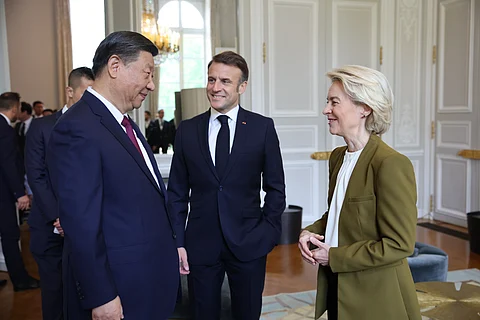

European Union leaders Ursula von der Leyen and Antonio Costa will meet Chinese President Xi Jinping and Premier Li Qiang in Beijing on Thursday for the 25th EU-China summit.
This meeting commemorates 50 years of diplomatic relations.
However, the one-day event, scaled back from a planned two-day summit in Brussels due to scheduling issues, faces challenges from ongoing trade and geopolitical disputes.
China’s Ministry of Foreign Affairs confirmed the meeting only this week, signaling hesitancy amid strained ties.
Beijing aims to reset relations, emphasizing pragmatic cooperation, but analysts see little chance for major breakthroughs.
The EU’s trade deficit with China, which doubled to 305.8 billion euros ($359 billion) by 2024, fuels concerns over Chinese overproduction.
Subsidized exports, especially electric vehicles, are seen as flooding European markets, threatening core industries like automotive.
China has countered with probes into European goods like dairy and brandy, escalating trade frictions.
Beijing’s restrictions on rare earth exports further disrupt European supply chains for defense and automotive sectors.
“Europe is really concerned about its core industries,” said Marina Rudyak from Heidelberg University, highlighting the economic stakes.
China’s close ties with Russia, particularly since the 2022 Ukraine invasion, remain a major point of contention.
The EU has sanctioned Chinese banks and firms for allegedly aiding Russia’s war efforts, prompting Beijing to threaten retaliatory measures.
China denies supplying dual-use goods to Russia and calls for a ceasefire, but tensions persist.
“Beijing considers its relationship with Russia as a core interest,” noted William Yang from the Crisis Group.
With both sides entrenched, analysts like Noah Barkin from Rhodium Group expect minimal progress, though the summit may maintain open communication channels.